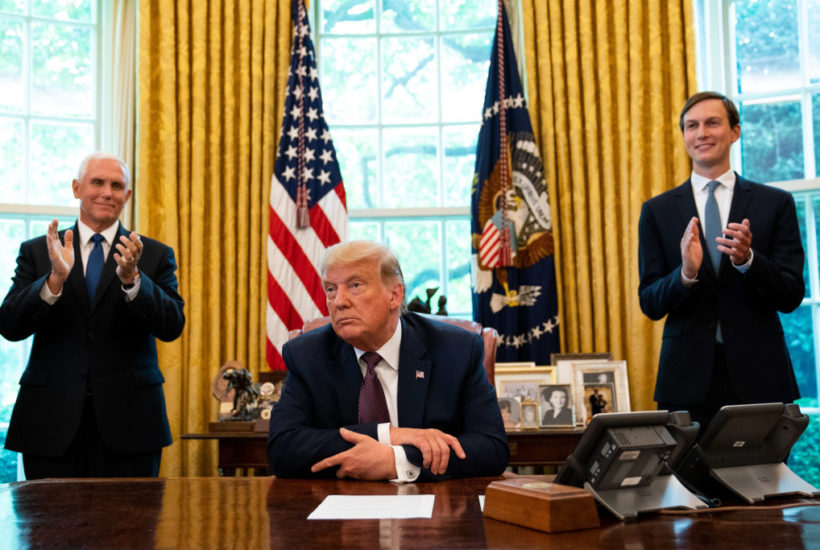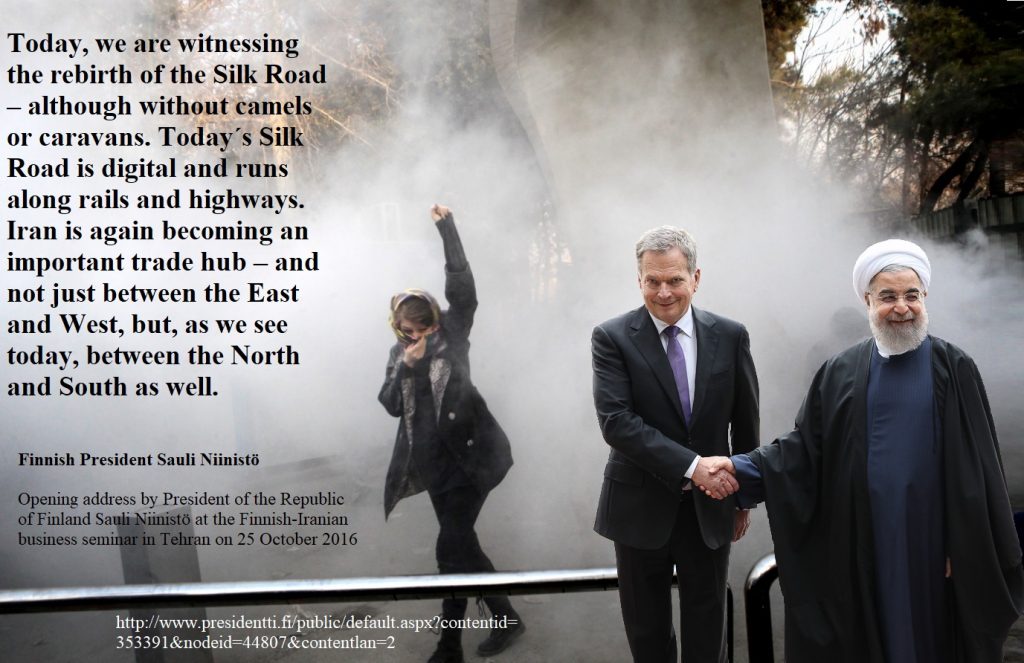Finnish M.E. analysts and so-called “experts” have been consistently wrong, and yet, they are still called upon by the media to offer their expertise that has had the consistency of helium…
It’s that kind of “expertise” that led Finland and it’s president into political and financial rapprochement with that Islamonazi state.
Siding with Obama, they chose to align themselves with a dangerous regime that has proven to be as intransigent as the Chinese Communist regime, which has greatly benefited from its status, both within the World Trade Organization and the UN as well. Contrary to the belief of their (the Chi-Coms) being eventually moderated from their inclusion with Western states, it has emboldened them to operate in direct contrast to the West’s system of values (which can be seen in the Wuhan Corona Virus scandal).
So too with the Iranian regime which has consistently cheated on their agreements and has continued waging its proxy wars in the region.
“By pulling back from direct military engagement in the Middle East while he promoted hardline opposition to Iran, Donald Trump has forced all Arab-Muslim states in the region to choose between appeasing the mullahs or making a common front against them.”
What Bahrain’s deal with Israel really means
Trump is bringing major changes to the Middle East
On September 15, representatives from the oil-rich Kingdom of Bahrain will meet Israeli leaders at the White House to sign a historic peace deal. It will normalize relations between the Muslim state and the Jewish one, not long after the United Arab Emirates concluded a similar pact. Expect more such ‘normalization deals’. They supplement other White House initiatives, such as the deal it brokered between Serbia and Kosovo, which includes both countries establishing closer relations with Israel.
The deals are significant for several reasons. First, they represent a common regional front against the Iranian threat, which has been developing beneath the surface for some time. Their public expression sends a stronger signal to Iran and opens the door to greater cooperation between Arab states and Israel, the region’s most developed economy and the leader in advanced military technology.
These deals also signal that Arab-Muslim regimes are less concerned with domestic, Islamist opposition to their outreach to Israel. Equally important, they show that the Palestinian Authority no longer holds a veto over fellow Muslims’ relations with Israel. We saw another sign of Palestinian weakness last week when the Arab League refused to condemn the UAE for its accord with Israel.
What changed to prompt these deals? The answer is not a greater threat from Iran. The danger from the mullahs is no higher now than it was in 2005, 2010, or 2015. Iran’s Sunni neighbors and Israel have all been threatened by Tehran’s expansionism, aggressive religious ideology, and support for terrorist movements for years. Yet, until recently, Israel was the only country seeking normalization with its Arab neighbors. What finally convinced the Arab states to come to the table was actually a shift in US policy.
President Trump’s foreign policy is significantly different from that of his predecessors. Unlike George W. Bush, who fought a land war in Iraq post 9/11 and deployed thousands of troops throughout the region, Trump is pulling back. He is instead emphasizing the geopolitical threat from China while withdrawing troops from the Middle East, including both Syria and Iraq, where Iran is a major presence.
Second, unlike Barack Obama, Trump is not seeking a ‘more balanced’, friendly relationship with Iran and a less supportive one with Saudi Arabia and Israel. Trump is vocally opposed to Iran’s mullahs. He is determined to isolate them diplomatically, punish them economically, and block them strategically. His policy to prevent them from building a nuclear weapon is not a joint agreement, like the one signed by the Obama administration and its European partners, but military deterrence and covert attacks on Iran’s nuclear program. Trump is openly supportive of both Israel and Saudi Arabia. He was willing to move the US embassy to Jerusalem despite opposition from the Arabists in the State Department, the Democratic party, the vast majority of foreign-policy experts from Boston to Washington, as well as and nearly all of Europe. They predicted huge pushback across the Muslim world. They were wrong. Trump was right.


